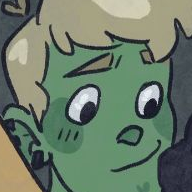My short story, The Unintended Consequences, ideas and concepts
While my story is short, it carries some interesting ideas.
My story is quite sad, but within it I tried to give people a deeper understanding on the issue of peaceful resistance against foes such as the businessman in my story. A critical flaw in the concept of nonviolence is that nonviolent solution requires human beings to have equal consciences and equal beliefs in what is right and wrong. Morality is relative to a culture, whether it is Christian, Islamic, Taoist, Hindi, or any other belief system under human perception. As such, there is no such thing as the absolute equivalences in goodness or evil in human beings, only moral relativity amongst our belief system, which may hold certain similar principles, but never exactly the same.
The businessman also used the spirit of the past to ignite those among the crowd most susceptible to his belief systems concept of "evil" within. The evil maybe homosexuality or even left handed people. By using the concept of evil within an group, who's ideology is aligned to believe in such things, a peaceful protest becomes nothing more than a catalyst for even worse actions in the future. The speech also held a few lines from Nazi propagenda and concepts, including the infamous two words at the end "Final Solution" to give a finality to the problem of this evil in society aka homosexuality.
As for the boy who sacrificed himself in order to seek a greater peace. I won't lie, I am using Christian Allegory here with the boy as a Christ figure sacrificing himself in hopes that people may realize how harmful these ideas are to society. Nonviolent protesters in the past used self-inflammation to project their point that certain things were wrong in society and while they do not wish to use violence, they were willing to give up their lives to raise issues in society. The unnamed young man in essence is the faceless people putting down their lives on a Pyrrhic sacrifice.
It's an allegory, not only for Chick-Fil-A, but also for every person to understand that each action has a consequence. As the Chinese Art of War tells everyone, "You must know your enemy, and know yourself, then you shall see a hundred battle, but not a hundred defeats."
In addition to this concept, which does not just mean merely violence or active conflict as Sun Tzu also said, "A leader's best quality is the ability to not fight and win a war through strategy before having to sacrifice resources of man and supplies."
A lot of complex ideas under 2K in words.
https://www.gayauthors.org/story/w-l/theunintendedconsequences






2 Comments
Recommended Comments
Create an account or sign in to comment
You need to be a member in order to leave a comment
Create an account
Sign up for a new account in our community. It's easy!
Register a new accountSign in
Already have an account? Sign in here.
Sign In Now